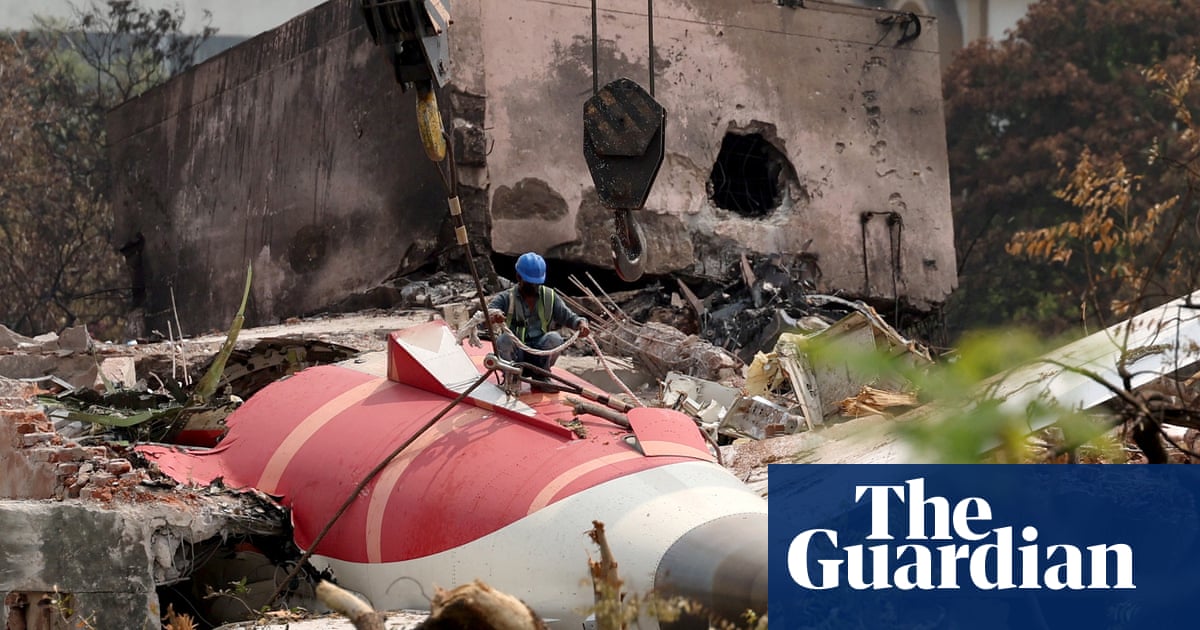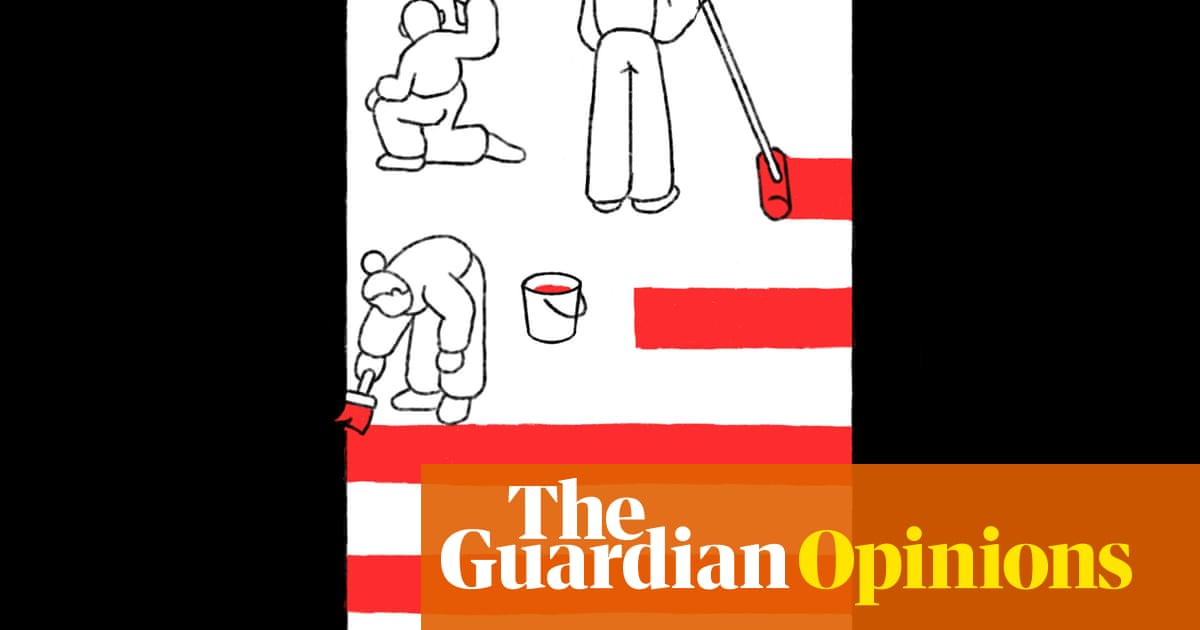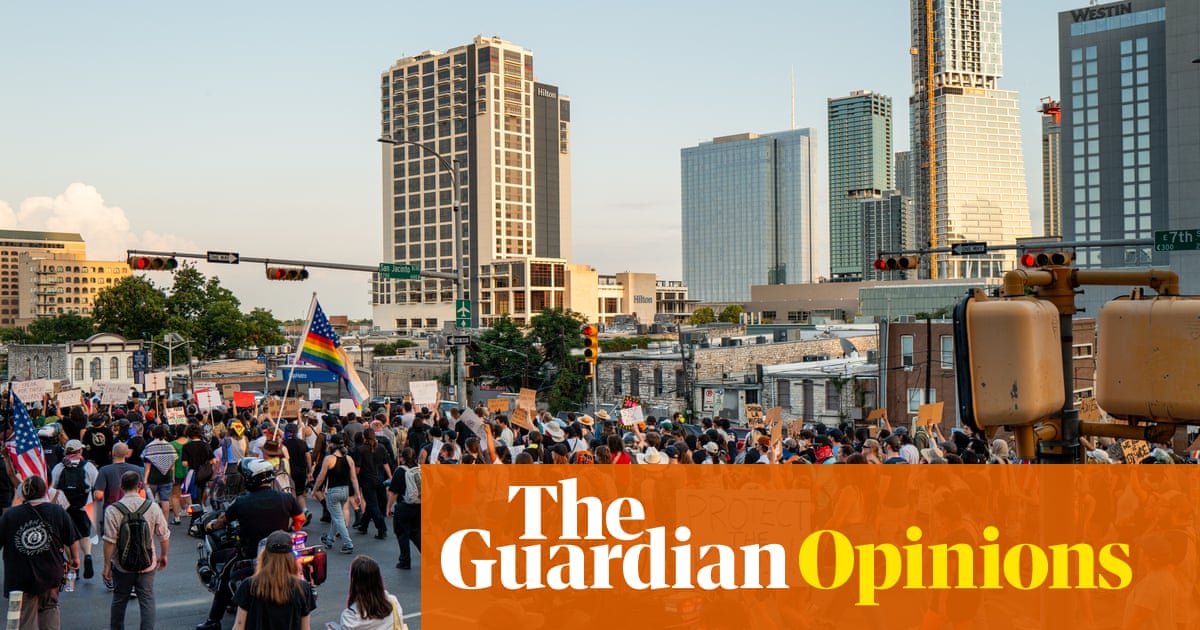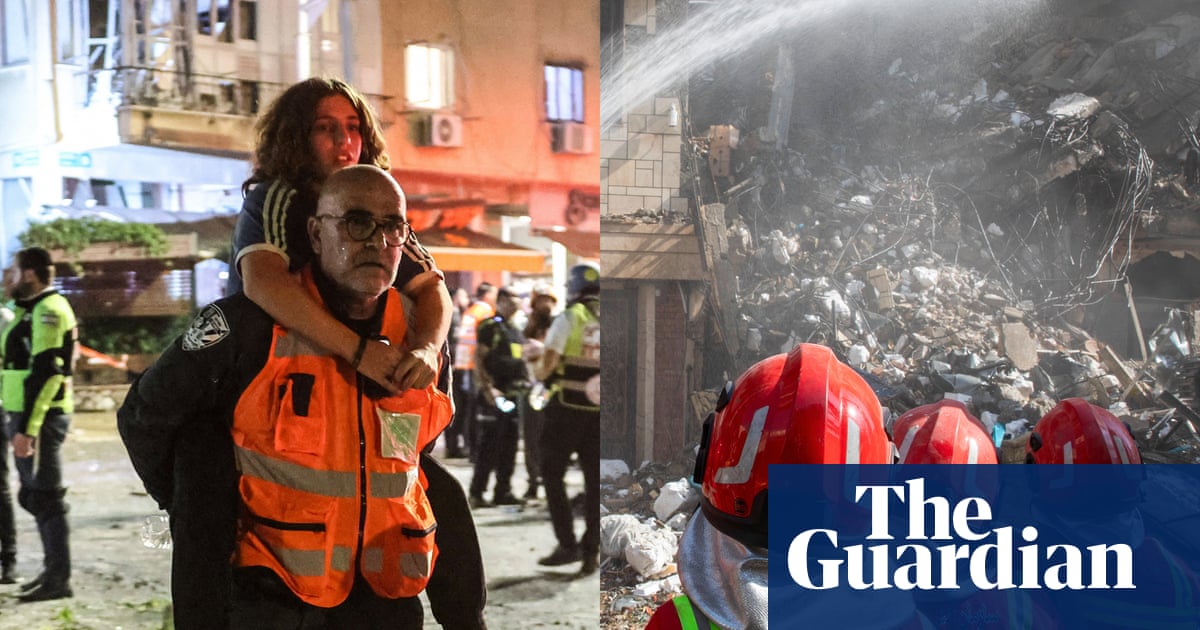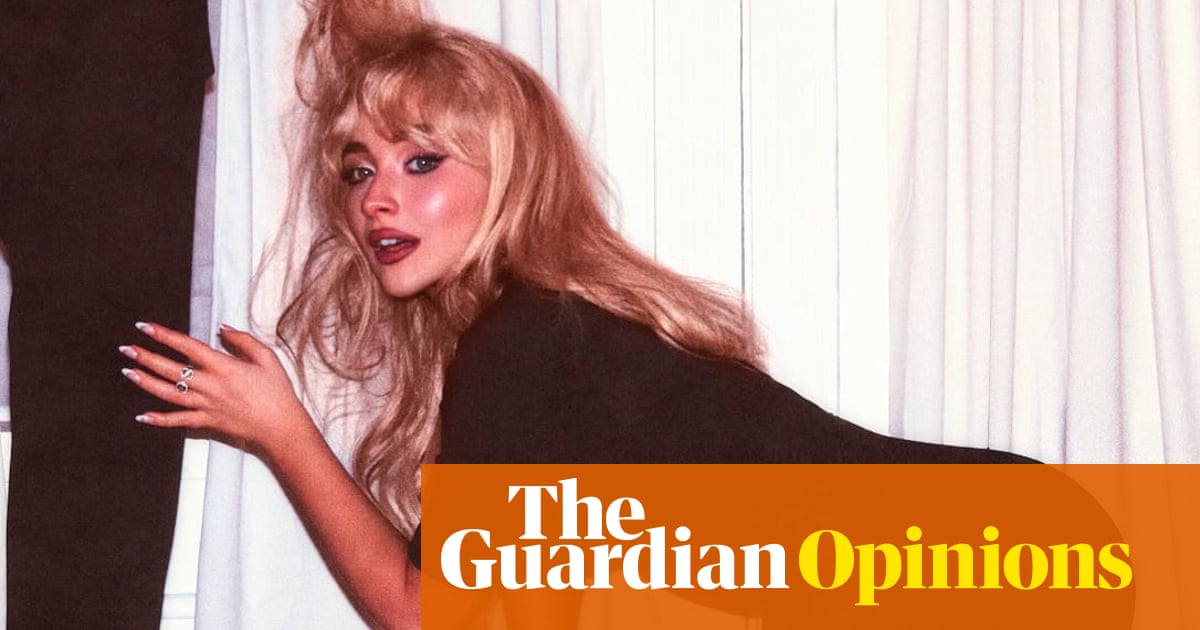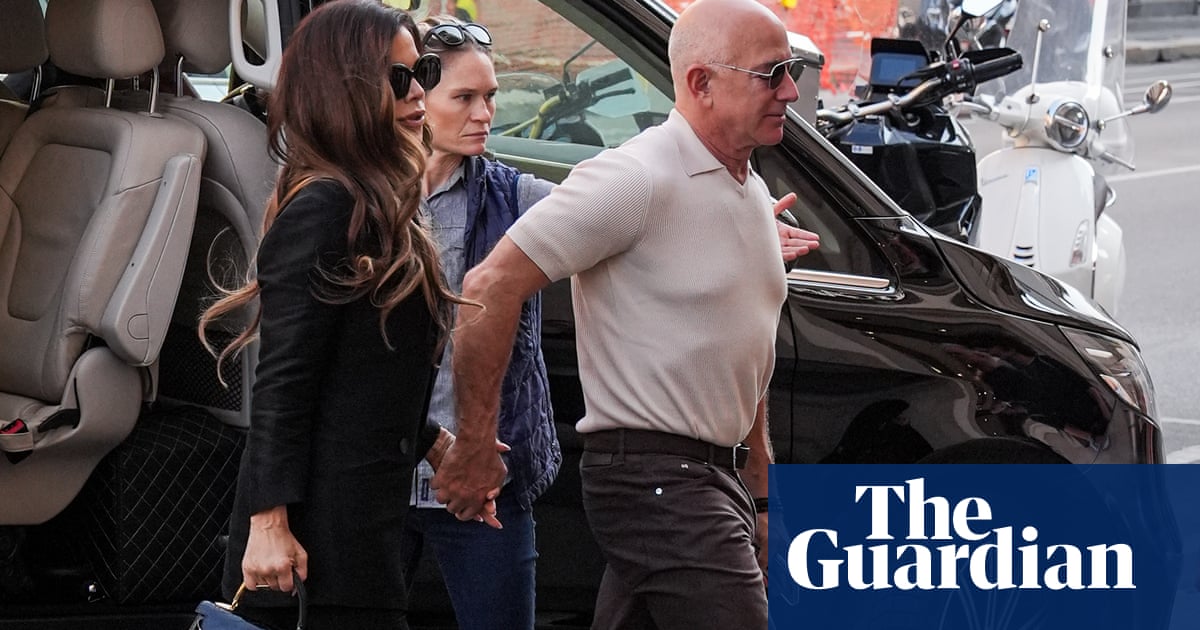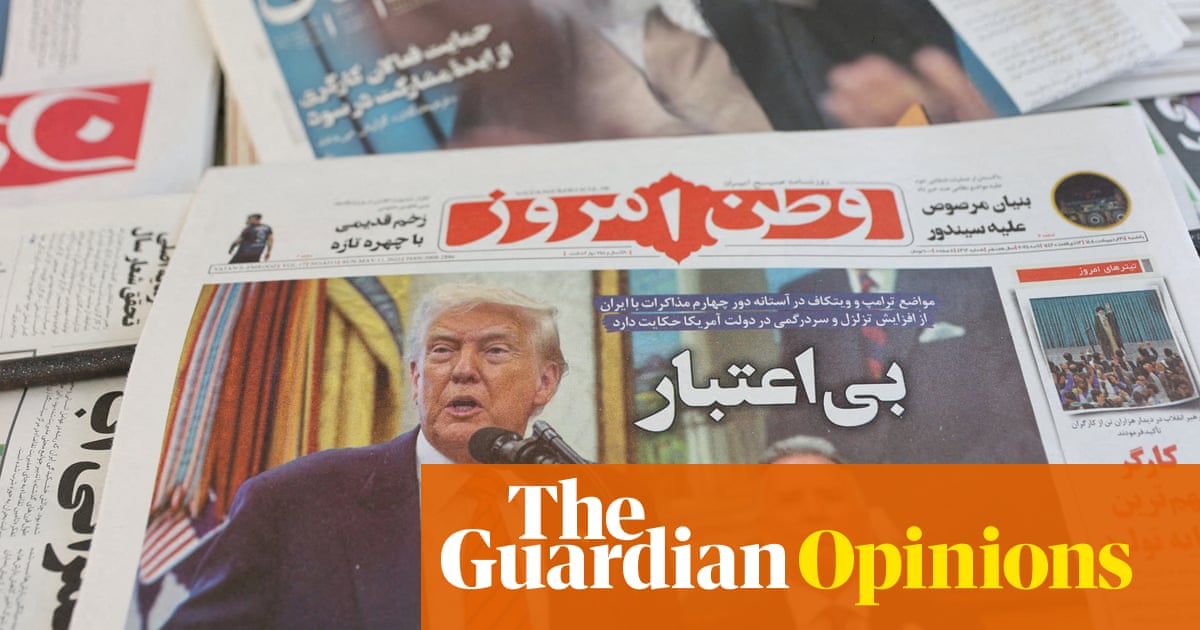It has been a dramatic couple of years for 37-year-old Dutch author Yael van der Wouden: her first novel, The Safekeep, a love story that deals with the legacy of the Holocaust in the Netherlands, was the focus of a frenzied bidding war and shortlisted for the 2024 Booker prize. Last night it won the Women’s prize for fiction.
“I wrote this book from a place of hopelessness,” she says when we meet. “I was looking for a ray of sunshine.” This morning in London the sun is blazing. She could never have expected that her novel would see off shortlisted authors including Miranda July (of whose work she is a big fan) and Elizabeth Strout.
Warm and open, the author is shorter than I expected. Coming as she does from a country of tall people, as she jokes: “I have tall energy.” She has great energy, despite several glasses of champagne last night and only a few hours’ sleep. On her shoulder is a tattoo of a hare – an important symbol in the novel – which she had done after completing the book.
In her tearful acceptance speech, Van der Wouden told the audience that when she hit puberty: “all at once, my girlhood became an uncertain fact.” The fact that she is hormonally intersex “was a huge part of my 20s, and then I got the healthcare that I needed … I am receiving truly the greatest honour of my life as a woman, presenting to you as a woman and accepting this Women’s prize and that is because of every single trans person who’s fought for healthcare, who changed the system, the law, societal standards, themselves. I stand on their shoulders.”
It was the first time she has spoken about it publicly. Not to have done so she tells me, “wouldn’t have been me. I had my five minutes on stage and I figured what better moment to share something that I care about? It’s heartbreaking to see so much hatred toward trans identities, queer identities.”
Set in the Netherlands in 1961, The Safekeep is a tense psychological thriller and tender love story between two very different women, Isabel and Eva. It is a story of dispossession and self-discovery, national and intimate secrets and shame. “This is a novel about a woman who is obsessed with a house, and then a stranger comes and upends her life,” the author says. Isabel is gentile, Eva is Jewish. To say much more would be to give away clues in a narrative that unfolds in a series of jagged revelations, like the shards of broken china Isabel cherishes, that come together to make a devastating and beautiful whole.
The idea for the novel came to her “as a parting gift” in a car on the way to one of the funerals of her Dutch grandparents, who died within days of each other in 2021. “It came from a place of trying to escape grief,” she says. “I was trying to find distraction in my own head, as I’ve done since I was a kid.”
Born in Israel in 1987 to a Jewish mother of Romanian and Bulgarian heritage and a Dutch father, Van der Wouden, who describes herself as a “Dutch-Israeli mixed-bag-diaspora child”, spent her first 10 years in Ramat Gan, a city just east of Tel Aviv. She is careful not to talk about her childhood through what she calls “a pink cloud” of nostalgia because of her vehement opposition to the Israel-Gaza war – she would like to see “a ceasefire with immediate aid”.
Both her parents were animators (her father created an Israeli version of Sesame Street) and while she and her two younger sisters were encouraged to engage with all art forms, she was not at all bookish.
It wasn’t until the family moved to the Netherlands when she was 10 that Van der Wouden discovered books – with Frances Hodgson Burnett’s The Secret Garden being a particular favourite. But she also discovered antisemitism, while living with her grandparents in a house in the forest. Though that home is still her “happy place”, going from cosmopolitan Tel Aviv to “being the only Jew in the village” wasn’t easy. To her new Dutch classmates she resembled Anne Frank.
Now, she has no time for the rhetoric of tolerance. “I think that’s a terrible word, because tolerance is putting up with somebody. I want to be desired. I want to be loved. Rather than writing a story about tolerance, I wanted to write a story about love in the aftermath of war.”
With Isabel, she created a character who goes from prejudice and repulsion to desire. There is a lot (an entire chapter) of sex in the novel. She laughs. “My goal was to imbue the whole book with a sense of tension, and that tension is erotic.”
after newsletter promotion
She deliberately chose the perspective of Isabel rather than Eva, so as not just to tell the victim’s story. “There’s also many parts of perpetrator within me, within my history,” she says. Van der Wouden had never read a novel that explored what she calls “the psyche of quiet complicity”. Through Isabel she wanted to show that “complicity comes from small and uninteresting acts of dismissal”, and it is something of which we are all guilty. “It’s part of the human experience. The question is, how do we deal with knowing that we looked away from something terrible, how do we then move forward?”
The emotional power of the novel rests on the way in which Isabel reveals herself to be someone completely different, even to herself. “What’s like me,” Isabel says to her brother. “There’s no such thing. Like me.”
This speaks to Van der Wouden’s personal experience. “We don’t leave this life in the same bodies were born into, we are always under flux,” she says. “This is not to say that gender and sexuality is a choice followed by change, but rather that change is an inherent part of life.” On the question of the supreme court ruling on gender rights, she adds: “To subject that to law feels baffling to me, especially as it is accompanied by legal, verbal and physical violence.”
Much of The Safekeep was written during lockdown in Utrecht, where she had an attic apartment overlooking the canal. “A beautiful golden cage,” she says. She now lives half an hour away in Rotterdam, where she is thrilled to have a garden. She has already completed the first draft of a second novel set in a fishing village in the Netherlands in 1929.
Her greatest hope for the novel as it goes on to find a bigger audience, “if this isn’t too saccharine,” she says apologetically, “is, in fact, hope.”

 18 hours ago
8
18 hours ago
8
